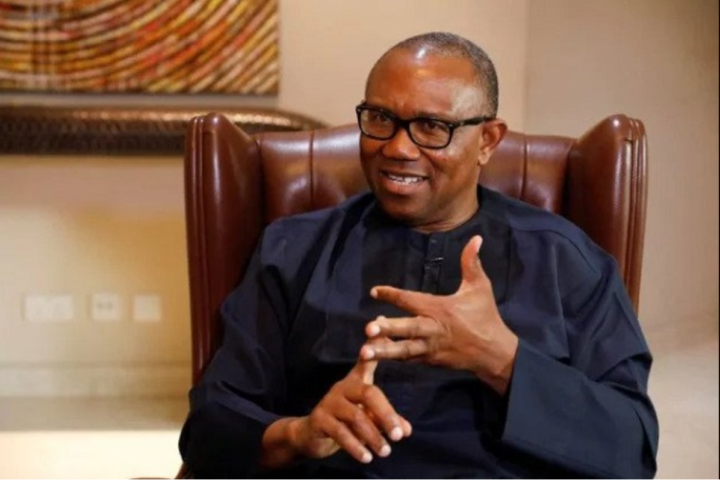In a scathing critique of the recently passed N2.17 trillion 2023 supplementary budget, former Anambra state governor and Labour Party’s presidential candidate, Mr. Peter Obi, lambasted the administration led by President Bola Tinubu for what he termed as “lavish indulgence.” The budget, which has now become a subject of national debate, was signed into law by President Tinubu, triggering Obi’s outspoken disapproval.
Expressing his discontent on his X account, Obi singled out specific items in the budget that he deemed extravagant, including the allocation for a “Presidential Yacht, Presidential Jets, the furnishing of already lavishly furnished presidential quarters and offices, fleets of luxury SUVs.” In Obi’s view, these items are a far cry from addressing the urgent needs of the nation.
Obi emphasized that a supplementary budget should primarily cater to pressing national welfare needs that were either overlooked in the main budget or lacked adequate funding. He criticized the government for prioritizing what he referred to as a “mysterious Presidential Yacht” and other luxury items over essential social welfare concerns.

“A supplementary budget is a budget made for very important national welfare needs of the people which were not captured originally in the main budget or do not have adequate funding. No item of urgent social welfare has yet featured in the supplementary budget being orchestrated by this government. Instead, the items being made to dominate public discourse on the budget include a mysterious Presidential Yacht, Presidential Jets, the furnishing of already lavishly furnished presidential quarters and offices, fleets of luxury SUVs, etc. This portrays a government that is uncaring and insensitive to the suffering of the majority, and indifferent to the mood of the nation. The least that Nigerians expect from the government at this difficult moment is empathy and realism, not lavish indulgence,” Obi asserted.
Beyond the criticism of lavish spending, Obi also highlighted the government’s failure to address the food crisis in the country. Citing warnings from the United Nations and World Food Programme that approximately 6.5 million Nigerians will face hunger in the coming year, Obi argued that the budget should have been allocated to mitigate this impending catastrophe.
“Admittedly, some items in the current budget may not have taken into consideration the needs of a new administration, but it is expected that a supplementary budget this late in the financial year should reflect mostly urgent items of national welfare. Sadly, the most pressing national needs and emergencies have not featured in the supplementary budget that was just announced by the government. For example, the United Nations and World Food Programme have recently alerted that up to 6.5 million Nigerians will go hungry next year. This number is largely from among citizens in Sokoto, Adamawa, Borno, Yobe, and Zamfara States. A caring Government to plan for the mitigation of such pending catastrophe can request for supplementary budget provisions to cushion those under threat,” he added.
The Labour Party’s presidential candidate emphasized that the allocation of funds should align with the current needs of the nation, particularly in the face of a looming food crisis. His criticism comes at a time when the country is grappling with various fiscal challenges and a substantial public debt burden.
Earlier, President Tinubu had signed the N2.17 trillion 2023 supplementary budget into law, with allocations exceeding N1 trillion for both capital and recurrent expenditures. The budget included provisions for renovating the state houses of the president and vice president, as well as appropriations for SUVs for the First Lady and federal lawmakers.
One particularly contentious item was the N5 billion appropriation for a presidential yacht, which sparked public outcry and led to its subsequent withdrawal by the House of Representatives. The funds were redirected to a student loan proposal, totaling N10 billion.
The public response to these budgetary allocations has been overwhelmingly critical, with many Nigerians condemning the perceived wastefulness and unnecessary expenses, especially in the midst of economic challenges and escalating public debt. The debate surrounding the supplementary budget reflects the broader concerns about fiscal responsibility and the government’s prioritization of national needs.
Support InfoStride News' Credible Journalism: Only credible journalism can guarantee a fair, accountable and transparent society, including democracy and government. It involves a lot of efforts and money. We need your support. Click here to Donate
